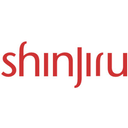Best VPS Providers for Privacy Curated by GitHub Users
Open Source and Always a Work in Progress (WIP)
Open Source and Always a Work in Progress (WIP)
This list ranks VPS and cloud compute providers by privacy, with a dual focus on workload privacy (including modern confidential computing with CPU & memory isolation/encryption, microVMs, TEEs, and attestation) and account/identity privacy (KYC requirements, crypto payments, and how much personal data is collected and centralized).
Only providers that have been around for at least five years are included, to avoid unstable, fly-by-night operations.
Our evaluation considers:
1. Confidential Computing / Data-in-Use Protection – AMD SEV-SNP, Intel TDX/SGX, AWS Nitro, Firecracker microVMs, attestation, etc.
2. KYC / Identity Requirements – Full (real name, billing, often ID), Basic (hosting account + billing), or Anonymous (email-only with crypto)
3. Crypto Payments – BTC, XMR, or other coins for privacy-preserving billing
4. Privacy Positioning – Explicit "anonymous", "offshore", "free-speech" or privacy-focused branding vs generic cloud
5. Jurisdiction & Longevity – Country of incorporation, data protection law, and minimum 5-year track record
| Rank | Provider | Confidential Computing | Anonymous Signup | Crypto | Privacy Focused | Offshore |
|---|---|---|---|---|---|---|
| 1 |  Microsoft Azure Microsoft Azure |
Yes | No | No | No | No |
| 2 |  Amazon AWS EC2 Amazon AWS EC2 |
Yes | No | No | No | No |
| 3 |  Google Cloud Platform Google Cloud Platform |
Yes | No | No | No | No |
| 4 |  Fly.io Fly.io |
No (microVMs only) | No | No | No | No |
| 5 |  BitLaunch BitLaunch |
No | Yes | Yes | Yes | Yes (Panama) |
| 6 |  VSYS.host VSYS.host |
No | Yes | Yes | Yes | Yes |
| 7 |  Hosteons Hosteons |
No | Yes | Yes | Yes | No |
| 8 |  ClientVPS ClientVPS |
No | Yes | Yes | Yes | Yes |
| 9 |  Shinjiru Shinjiru |
No | No | Yes | Yes | Yes (Malaysia) |
| 10 |  OrangeWebsite OrangeWebsite |
No | No | Yes | Yes | Yes (Iceland) |
| 11 |  FlokiNET FlokiNET |
No | No | Yes | Yes | Yes (Iceland) |
| 12 |  Linode Linode |
No | No | No | No | No |
| 13 |  DigitalOcean DigitalOcean |
No | No | No | No | No |
| 14 |  Vultr Vultr |
No | No | Yes | No | No |
| 15 |  1984 Hosting 1984 Hosting |
No | No | Yes | No | Yes (Iceland) |
The following providers offer cryptographic protection of data-in-use. Your workload data is encrypted even from the cloud provider's operators.
These providers offer anonymous signup and crypto payments, allowing VPS usage without identity disclosure.
Long-established providers in privacy-friendly jurisdictions with strong free-speech policies.
Standard VPS providers with conventional security but no enhanced privacy features.
 1. Microsoft Azure
1. Microsoft Azure 2. Amazon Web Services (AWS EC2)
2. Amazon Web Services (AWS EC2) 3. Google Cloud Platform (GCP)
3. Google Cloud Platform (GCP) 4. Fly.io
4. Fly.io 5. BitLaunch
5. BitLaunch 6. VSYS.host
6. VSYS.host 7. Hosteons
7. Hosteons 8. ClientVPS
8. ClientVPS 9. Shinjiru
9. Shinjiru 10. OrangeWebsite
10. OrangeWebsite 11. FlokiNET
11. FlokiNET 12. Linode (Akamai Cloud)
12. Linode (Akamai Cloud) 13. DigitalOcean
13. DigitalOcean 14. Vultr
14. Vultr 15. 1984 Hosting
15. 1984 HostingAzure, AWS, and GCP represent the current state-of-the-art in workload privacy through confidential computing. Their TEE-based architectures with AMD SEV-SNP, Intel TDX/SGX, and AWS Nitro provide cryptographic guarantees that even cloud operators cannot access guest memory. This is the strongest technical protection available for data-in-use.
However, these hyperscale clouds require full identity disclosure and operate under US jurisdiction, making them unsuitable for users prioritizing account anonymity or jurisdictional privacy.
For account privacy, BitLaunch, VSYS.host, Hosteons, and ClientVPS offer email-only signup with cryptocurrency payments, allowing VPS usage without identity disclosure. BitLaunch is particularly notable as it provides a privacy-preserving front-end to major cloud providers.
The offshore/free-speech category (Shinjiru, OrangeWebsite, FlokiNET, and 1984 Hosting) provides jurisdictional protection and content policy advantages. Iceland-based providers benefit from strong data protection laws and historical resistance to foreign data requests.
The ideal scenario depends on your threat model: use Azure/AWS/GCP for maximum workload confidentiality when the cloud provider itself is the threat, or use anonymous crypto-accepting providers when identity disclosure is the primary concern. For many users requiring both, the solution is layering: deploy user-level encryption (LUKS, VeraCrypt) on anonymous hosting providers to achieve both account privacy and workload protection.